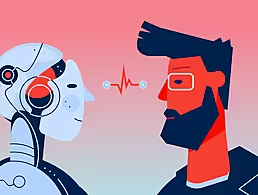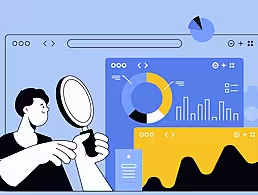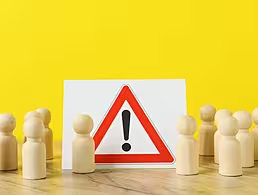There’s no better time than now to get organised for the year ahead, and Evernote’s Beat Buhlmann has some top tips to help you declutter.
We live in the age of information overload. Many of us feel distracted by the unnecessary clutter that comes at us on a daily – even hourly – basis.
Every day, we create content (through texts, emails and social media posts), read content that’s provided to us (links, Slack messages, more emails) and find content organically (reading the news).
That’s a lot of information to take in and many of us end up feeling anxious when staring at our lists of personal and professional responsibilities.
This general feeling of being overwhelmed is caused by three specific types of overload, which I call ‘triple overload’: data overload, communication overload and cognitive overload.
As data doubles every 14 months and we already spend 80pc of our working time on communication, this phenomenon is only getting worse in 2018. How is it possible to streamline and organise our lives and our data to manage the constant onslaught of information?
The key is creating the feeling of having more time by muting outside distractions. Like many things, organisation is a lifestyle, and the various ways of going about arranging our lives varies among individuals. What works for some doesn’t necessarily work for others.
If organisation is your goal for 2018, here are a few tips I’ve seen work well during my career.
Clean it up
A clean workspace can significantly reduce stress. Decluttering both our desks and our digital desktops helps with certain anxieties we might feel about unfinished projects. A workspace that is void of unnecessary objects, papers, supplies, icons, status updates and push notifications can have a restorative effect on our minds.
Start by getting rid of invasive newsletter subscriptions in your inbox, creating folders and auto-filters. An organised inbox will help everything else fall into place.
Since the average knowledge worker gets interrupted every five minutes, limit your push notifications for email on your phone or even turn them off completely. At the end of the day, you will feel less exhausted and more productive.
Next, remove office supplies, stacks of paper, coffee cups, water bottles and whatever else may be distracting you around your physical desktop. Doing this for five minutes at the end of your work day helps maintain order and refocuses your energy on what’s important.
Go paperless
You actually don’t need stacks of paper or tons of files on your desk at all in the modern digital age.
Business cards, receipts, documents, contracts and any other paper documents should be scanned for organisation and easy access. Use your smartphone’s camera to take a digital record of items that would otherwise clutter your desk drawer.
A paperless work environment might take some time getting used to, but it’s the fastest way to store and systemise.
Leverage tech tools
There are tons of tech tools that can help you with organisation – apps that are built to complement how our brains work naturally are best. There are plenty of resources on the market that store information in one easy, accessible place, as a natural extension of our minds.
- Todoist manages tasks and projects, both online and offline, by accessing tasks and allowing for collaboration on shared activities through a distraction-free design.
- Templated to-do lists also help categorise thoughts and necessary actions in a central location. Seeing your day mapped out visually will help with allotting the necessary time to complete each item.
- Evernote’s Web Clipper is a great tool to use to save the tabs on your internet browser for later, so that you don’t get sidetracked when you’re trying to focus on a specific task. The Evernote feature called Context uses artificial intelligence to get tasks done by sorting according to what is most relevant for you, ultimately improving workflow.
Once organised, prioritise
A big part of organisation is prioritisation. Relevant and active projects should be sorted together with labels such as ‘urgent’, ‘important, not urgent’, ‘not urgent’ and ‘not important’.
Grouping projects in this manner helps organise the time you have to complete each task, specifically if it’s a high-priority project. Since productivity is a by-product of organisation, continue to reassess your tasks and configure their organisation on your priority list frequently.
Streamlining efficiency and optimising productivity are the keys to being successful in today’s digitised world. Use these tips and you’ll notice the difference, as data and clutter overload subsides and we’re able to focus on what’s truly important.
Beat Buhlmann is the general manager of Evernote EMEA. With 10 years of life management coaching under his belt, he decided to write a book about personal development planning and how it can help people manage their work goals and personal lives simultaneously. Become the CEO of Your Own Life was published in 2017.




